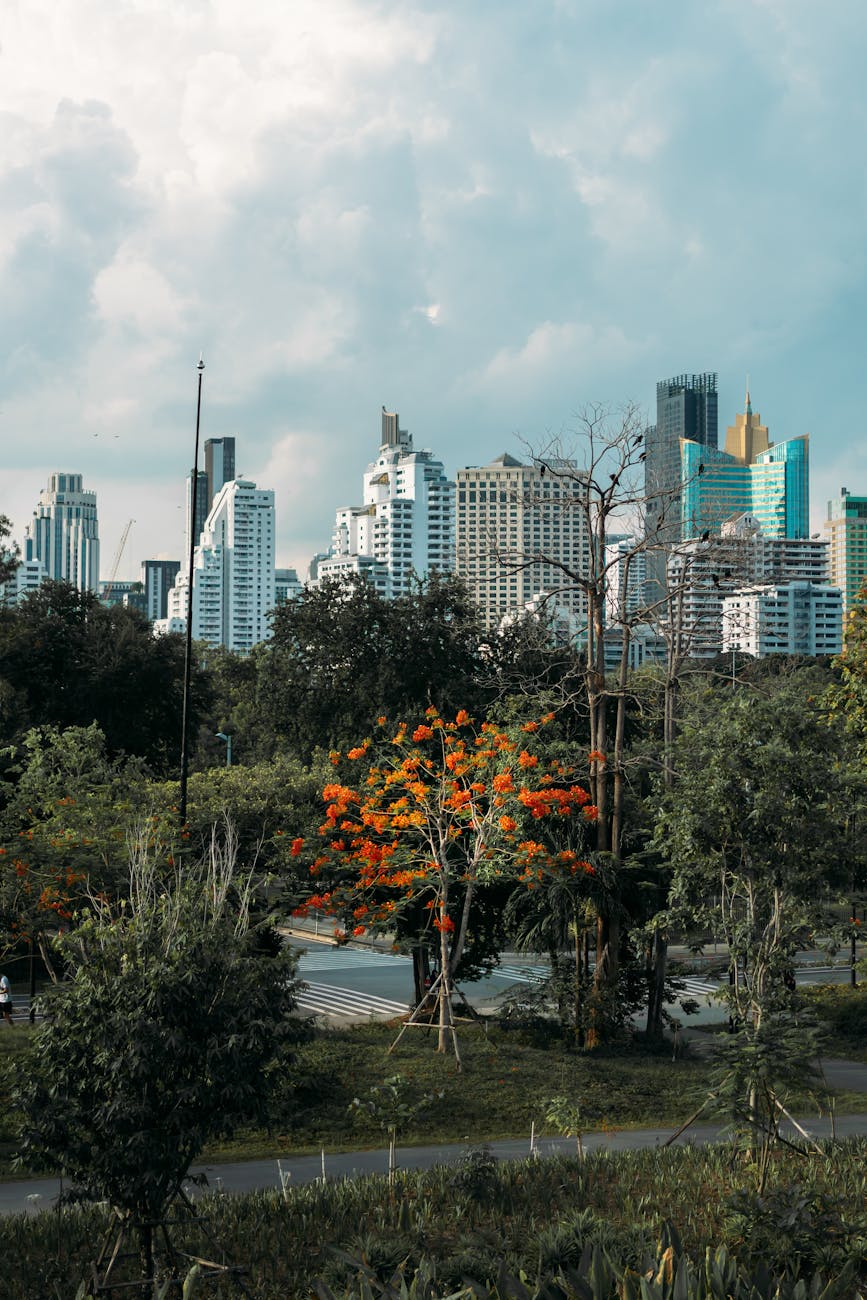Embarking on a trip to Thailand is more than just a delightful exploration of vibrant cultures, stunning landscapes, and delicious cuisine; it also offers a unique opportunity to understand how this captivating nation can set an exemplary standard in achieving Sustainable Development Goals (SDGs). Markedly, with its rich traditions coupled with modernization efforts, Thailand is positioning itself as a beacon of sustainability that could lead other nations towards a more sustainable future. In this blog post, we explore the harmonious balance Thailand is striking between tourism and sustainability, while examining practical steps that could further enhance its role in achieving global goals.
The journey through this post will reveal intriguing insights into Thailand’s commitment to sustainability, various initiatives that are in place, and innovative solutions that could serve as a model for other countries. With an emphasis on real-life applications and actionable strategies, readers will discover how Thailand not only enriches the traveler’s experience but can also inspire nations worldwide to embrace sustainable practices in their quest for development.
Understanding the Sustainable Development Goals (SDGs) is critical as they are an urgent call to action for all countries to work collaboratively towards a better, more sustainable future for our world. Established in 2015 by the United Nations, these 17 goals encompass a broad spectrum of social, economic, and environmental development issues that aim to eradicate poverty, promote equality, and protect the planet. Each goal has specific targets and indicators that countries aim to achieve by 2030, guiding their policies and programs towards sustainable progress. It is this framework that can help frame Thailand’s initiatives as it embarks on its journey to monumentally impact the SDGs on both a local and global stage.
The goals resonate deeply in the Thai context as nation-building initiatives increasingly align with sustainability efforts. From advancing education to improving infrastructure and promoting responsible consumption and production, Thailand is doing more than just implementing policies; it is recognizing the interconnectedness of each goal. For instance, fostering quality education not only nurtures informed citizens but simultaneously empowers communities to engage in environmentally friendly practices. Clearly, the landscape is ripe for Thailand to lead the charge, demonstrating how countries can amalgamate tradition with modern solutions to achieve these ambitious objectives.
Thailand has embarked on several noteworthy initiatives aimed at achieving sustainability across various sectors. The government is driving policies focusing on renewable energy, waste management, and environmental protection, showcasing a commitment to reducing carbon emissions and fostering a greener economy. One prominent initiative involves increasing the adoption of solar energy. By implementing solar farms and providing incentives for households to utilize solar panels, Thailand is strategically targeting its energy goals while simultaneously catering to the needs of its citizens.
Additionally, waste management has taken center stage, with more efforts placed on recycling and reducing plastic pollution. Thailand, renowned for its picturesque beaches, has recognized the urgent need to protect its natural resources from environmental degradation that tourism often brings. Introducing initiatives such as ‘Plastic Free Thailand’ significantly contributes to the reduction of plastic waste, thereby mitigating its impact on marine ecosystems. By adopting these comprehensive strategies, Thailand is effectively navigating the complex landscape of sustainability while setting a robust example for nations worldwide.
Ecotourism has emerged as a transformative approach in Thailand, marrying environmental conservation with the experience-driven demands of the modern traveler. This burgeoning sector focuses on responsible travel to natural areas that conserves the environment, improves the well-being of local communities, and educates visitors on their environmental impact. By championing ecotourism, Thailand is not only enhancing the traveler’s experience but is crafting pathways for revenue generation that are environmentally sound.
For instance, northern regions of Thailand have seen significant growth in eco-lodges designed to minimize environmental footprints while allowing visitors to engage with local culture and nature respectfully. Tours often include activities like guided treks through national parks that educate tourists on local biodiversity and conservation efforts. Such initiatives stimulate local economies and generate interest in environmental stewardship, creating a cycle where sustainability and tourism thrive hand in hand. These real-life examples underscore how Thailand can be a model for integrating tourism with sustainable practices, ultimately encouraging other nations to rethink their tourism strategies.
Community-driven initiatives are at the heart of Thailand’s sustainable development narrative, exemplifying how grassroots movements can catalyze change. Active participation from local communities ensures that sustainability efforts are tailored to fit cultural contexts and local needs while fostering a sense of ownership among residents. Involving communities in conservation efforts, such as local fisheries managing their resources or farmers embracing organic practices, not only empowers them but also effectively enhances environmental resilience.
Case studies illustrate that many regions in Thailand are building sustainable livelihoods through community programs focused on ecotourism, organic agriculture, and conservation. For instance, the ‘Community-Based Tourism’ initiative not only provides economic benefits but also enhances pride in local heritage and biodiversity. Thriving communities are pivotal as they can lead the way for innovation in sustainability, thereby showcasing the power of collective effort. Ultimately, when locals are champions of their environment, the impact on sustainability initiatives becomes profound and far-reaching.
To further enhance its role in sustainability, Thailand can consider implementing several actionable strategies. Engaging with international environmental organizations to attract funding and expertise can magnify local initiatives, ensuring that best practices are shared and locally tailored solutions are developed. Expanding educational programs focused on sustainable development can raise awareness among citizens about their environmental footprint and cultivate a culture of sustainability across generations.
Moreover, leveraging technology can improve transparency and efficiency in resource management. For instance, utilizing mobile applications for waste management could facilitate communication between service providers and residents, leading to increased recycling rates and decreased litter. Additionally, incentivizing businesses to adopt sustainable practices, such as offering tax breaks for eco-friendly operations or funding for green certifications, could propel effective change across industries. By proactively seeking methods to enhance sustainability, Thailand can solidify its legacy as a leader in sustainable development, inspiring nations around the globe to follow suit.
The implications of embracing sustainability in Thailand extend beyond just the nation itself; they resonate globally by setting an exemplary model for other countries to emulate. Facing global challenges such as climate change, resource depletion, and social inequality, Thailand’s proactive measures could serve as a guidepost for others grappling with similar issues. As Thailand continues to capitalize on its rich biodiversity and cultural heritage, it not only draws tourists but cultivates an environment where sustainable practices can flourish naturally.
In the years to come, if effectively managed, Thailand could enhance its standing in international tourism by promoting sustainability as a central theme. With travelers increasingly searching for destinations that align with their values, Thailand has the opportunity to present itself as a leader who is valiantly standing against environmental degradation while celebrating its natural beauty and cultural wealth. The strategic commitment to sustainability not only ensures that Thailand’s resources remain intact for future generations but also positions the country as a role model for other nations, igniting global discourse around sustainable practices.
Embracing sustainability presents Thailand with a golden opportunity to become a vanguard in global initiatives aimed at achieving the Sustainable Development Goals. With its rich cultural tapestry, dedication to environmental conservation, and innovative approaches to tourism and community involvement, Thailand is well-equipped to lead the charge towards a sustainable future. By fostering awareness and action on sustainable practices among citizens and tourists alike, the nation can empower others to join this vital cause. As we reflect on the beautiful landscapes and vibrant communities of Thailand, let us all commit to supporting sustainability efforts in our own lives, whether through conscious travel choices, advocacy, or embracing eco-friendly practices.
Now is the time for Thailand, and indeed all nations, to actively partake in this grand endeavor. Collectively, we can shape a world where environmental health always harmonizes with community well-being and economic progress. Everyone has a role in this journey, and every action—be it small or large—can lead to monumental change. Together, let us champion sustainable development and echo Thailand’s story of resilience and hope across the globe.
What are the Sustainable Development Goals?
The Sustainable Development Goals are 17 global goals set by the United Nations in 2015, aiming to address global challenges such as poverty, inequality, climate change, and environmental degradation by 2030.
How is Thailand tackling sustainability?
Thailand implements several initiatives, including promotion of renewable energy, community-driven conservation efforts, and ecotourism, to meet its sustainability objectives and align with the SDGs.
What is ecotourism and its relevance in Thailand?
Ecotourism focuses on responsible travel to natural areas, aiming to conserve the environment and enhance the well-being of local communities. In Thailand, it provides tourists with enriching experiences while promoting sustainable practices.
How can local communities contribute to sustainability efforts in Thailand?
Local communities can engage in sustainability by participating in conservation programs, adopting organic farming practices, and initiating community-based tourism projects that foster economic benefits while protecting local ecosystems.
What can individuals do to support sustainability while traveling in Thailand?
Travelers can choose eco-friendly accommodations, minimize waste and plastic usage, engage in responsible consumption, and support local businesses that prioritize sustainability in their operations.
Image Credit: Pexels





